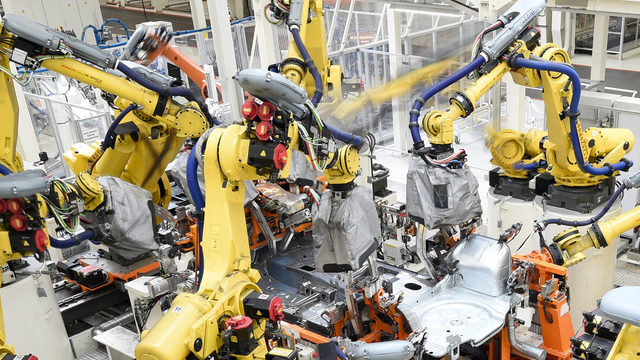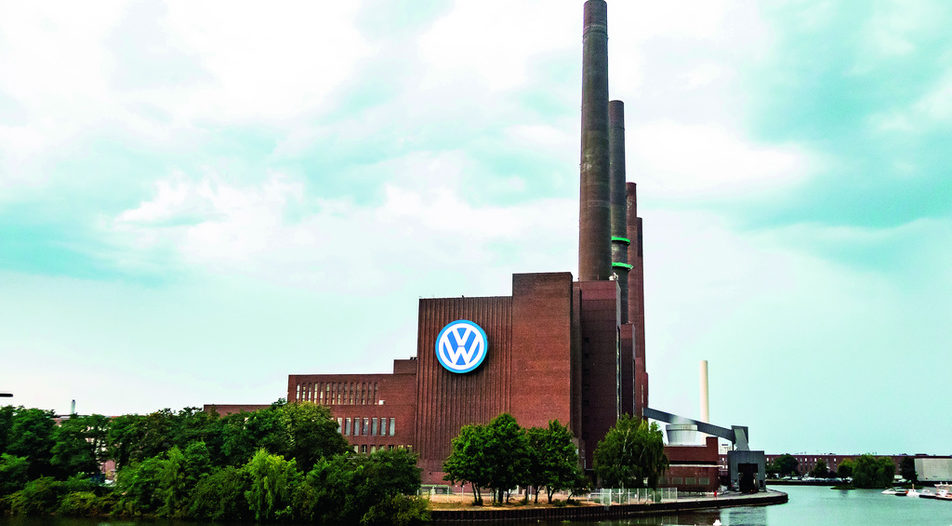For months now Volkswagen's Board of Directors has been painstakingly debating where in Central and Eastern Europe to base their new production plant. Bulgaria was touted as a possible location and once seemed to be in the lead, but now its chances are looking slim. It seems that the Wolfsburg-based corporation prefers Turkey. The expected 1.4-billion euro investment is not the only reason why Sofia was hoping to get chosen. The arrival of Das Auto would also give Bulgaria a stamp of approval, proving that the country is no longer behind its Eastern European peers or just an anonymous subcontractor in global companies' value chains. VW is looking for a new home
In late 2018, Volkswagen announced that it was looking for a location for a new production plant in Eastern Europe. Initially, the idea was to assemble two models of the Volkswagen Group: Skoda Karoq and SEAT Ateca, which would mean moving the current production from the Skoda plant in Kvasiny, the Czech Republic. The Czech plant would shift to assembling the models VW Passat, Skoda Superb and Skoda Kodiaq. The transformation is part of Volkswagen's strategy of focusing production capacity in the group's factories in Emden and Hannover on electric cars. Why Turkey?
Turkey has offered government assistance to VW in the form of financial support of 900 million euro, according to sources of Capital. The government has also promised to buy the land and build the production plant itself, which would significantly decrease costs associated with the investment for VW. In addition, the sovereign wealth fund Qatar Holding LLC is one of the minority shareholders in Volkswagen with 17% of voting shares. The Gulf monarchy is a traditional ally of Turkey and is vying for VW to choose Ankara over Sofia, which has been tipping the scales in Turkey's favor. Another benefit for Turkey is the size of its automobile market, which is among the most important for VW in Europe and the Middle East, considering the country's population (80 million) and the number of VW automobiles sold in 2018 (over 120,000). Bulgaria cannot compete with these numbers, as its market is insignificant by comparison. In 2018 only 40,000 automobiles were sold in Bulgaria, of which a little over 3,000 were Volkswagen brands. Turkey also has significant experience in automobile manufacturing. Volkswagen is looking at an industrial park in Izmir, where several auto component suppliers operate. The plot of land where VW could park has already been cleared and is ready for construction to start, with all the necessary infrastructure requirements for major production such as supply of electricity, gas, etc. Turkey's public administration could also potentially be a big customer for the plant. A source of Capital has said that the Turkish government has promised to purchase at least 100,000 cars.
However, several factors weigh against Turkey. Turkish drilling for gas off the west coast of Cyprus has caused the EU to impose sanctions on Ankara. The US has also been threatening to slap sanctions following Turkey's purchase of Russian arms.
Why not Bulgaria?
Bulgaria's chances of being the site of the production plant have never been great. The country has significant structural problems which hamper the entry of large, complex production processes such as automobile-making.
It should also be noted that Bulgaria has no experience of attracting investors of that scale. The country had never negotiated with intermediaries of JLL's level - the fund which VW hired to evaluate the plots of land. Sofia had also never promoted in such a way privately-owned plots and was unprepared for the level of organization that the competition required. According to sources of Capital, representatives of almost all Bulgarian ministries joined the negotiations and worked together, which is astounding for the Bulgarian administration. Former minister of economy Traicho Traikov said that the interaction between municipal and state administration was 'unprecedented'.
People familiar with the negotiations claim that one of Bulgaria's failures was its scrupulous adherence to all European state-aid rules. Experts say that the government could have been 'more creative' and sought rebates from Brussels by arguing that the plant would be lost to Europe as a whole if a non-EU country were chosen. This is precisely what Slovakia did to win a 125-million euro Jaguar Land Rover plant over Mexico.
In addition, the process once again revealed labor shortages in Bulgaria. A VW plant would need 5,000 workers, which has caused significant concerns among large industrial producers in Sofia and Plovdiv. The lack of adequate road infrastructure to handle the large export volume was also demonstrated.
Nevertheless, even if VW doesn't build a plant in Bulgaria, the investment rush of the last few months has brought benefits. The mere fact that Europe's largest automaker was considering Bulgaria is already good publicity. Furthermore, the competition led to a significant mobilization of the administration and highlighted the weak spots.

Almost final
"A decision regarding Volkswagen's new production plant has not yet been reached. Plans have been specified, but not finalized," a spokesperson for the corporation said in a Deutsche Welle article entitled "Bulgaria is still in the game: still no final decision".
The article was a response to media reports by Germany's Automobilwoche and Handelsblatt in July that Das Auto had already chosen Turkey over Bulgaria.
According to those reports, Turkey was suggested personally by the chairman of the board Herbert Diess but there was no final decision. Plans were supposed to be finalized and made public at the end of August but have now been further delayed to the end of the year. Until then VW will be conducting a review of the judicial framework in Turkey, in addition to evaluating the country's level of democracy.
However, these measures look like a rebuttal to potential criticism that it chose a country with an authoritarian regime for its investment. While it seems unlikely that a negative assessment of the human rights environment in Turkey will prompt the automaker to dismiss it as an investment destination, EU member Bulgaria remains attractive in terms of its legal environment. "Being part of the EU guarantees a level of legal certainty," Handelsblatt quoted a VW manager as saying.
If the rumours are confirmed in the coming months, the metropolitan city of Izmir will get a huge production plant for several VW brands, 5,000 new jobs in the plant itself and 5,000 in subcontractors.
In search of other mega-deals
If nothing else, Bulgaria got enough know-how from the negotiation process to now be able to attract big investors more successfully. Other leading car manufacturers like Hyundai and Peugeot are also looking to invest in Central and Eastern Europe. Brexit caused Japanese producers to leave the UK and think about other locations for their investments.
Initially, one of the discussed sites for the VW plant in Bulgaria was in the Rakovski Industrial Zone, near Plovdiv. There, the owners are already looking for other potential production plants to bring in.
Jason King, CEO of Telenor Bulgaria: We commenced 5G trials
What was the main event in your business sector in Bulgaria in the last quarter?
The 5G trials that Telenor commenced three months ago were a major step in the development of the mobile sector in Bulgaria. So far, we have tested the new technology in the fields of medicine, mentoring, entertainment and production. We also provided 5G Wi-Fi, but more importantly, we invited users to actively try 5G themselves. Over 2000 people watched a live broadcast of a concert over 5G on their smartphones via the MyTelenor app. Over 11000 people witnessed the remote medical examination in real-time over 5G. Use cases are essential, and we are just scratching the surface of a whole new world of opportunities.
What do you see as the next major development in your company's business in the forthcoming quarter or further?
Obviously, the next major development will be with 5G technology which carries the potential for entirely new business models and services. We are having constructive dialogues with all stakeholders including the government to help bring this 5G ecosystem (technology, spectrum, devices, site permits, use cases/application) to life. We will also continue with our focus on always improving the positive ways and means in which we serve our customers. Taking customer service to the next level will be an absolute key for us in the future.
Jason King has been appointed CEO of Telenor Bulgaria, part of PPF Group, effective 1 September 2018. He has almost 20 years of experience in global telecom companies, including Deutsche Telekom, UPC Liberty Global and Veon. In addition, he has also worked in interim CEO advisory roles at CME and Telenor Denmark.
For months now Volkswagen's Board of Directors has been painstakingly debating where in Central and Eastern Europe to base their new production plant. Bulgaria was touted as a possible location and once seemed to be in the lead, but now its chances are looking slim. It seems that the Wolfsburg-based corporation prefers Turkey. The expected 1.4-billion euro investment is not the only reason why Sofia was hoping to get chosen. The arrival of Das Auto would also give Bulgaria a stamp of approval, proving that the country is no longer behind its Eastern European peers or just an anonymous subcontractor in global companies' value chains. VW is looking for a new home
In late 2018, Volkswagen announced that it was looking for a location for a new production plant in Eastern Europe. Initially, the idea was to assemble two models of the Volkswagen Group: Skoda Karoq and SEAT Ateca, which would mean moving the current production from the Skoda plant in Kvasiny, the Czech Republic. The Czech plant would shift to assembling the models VW Passat, Skoda Superb and Skoda Kodiaq. The transformation is part of Volkswagen's strategy of focusing production capacity in the group's factories in Emden and Hannover on electric cars. Why Turkey?












